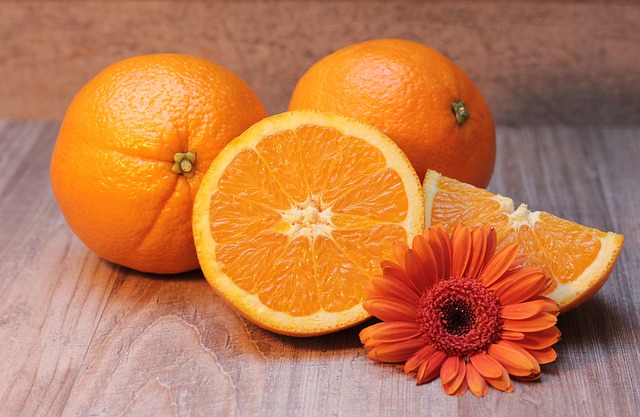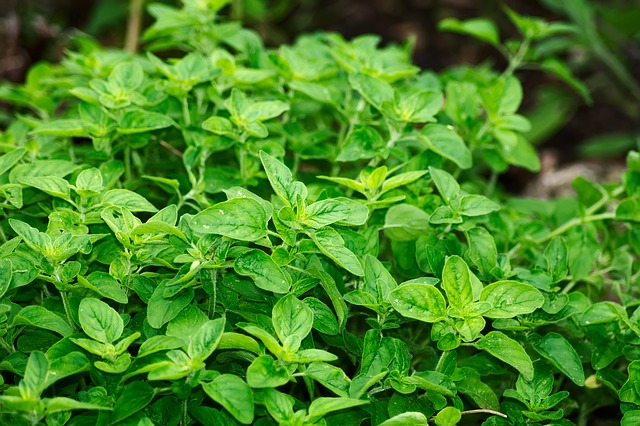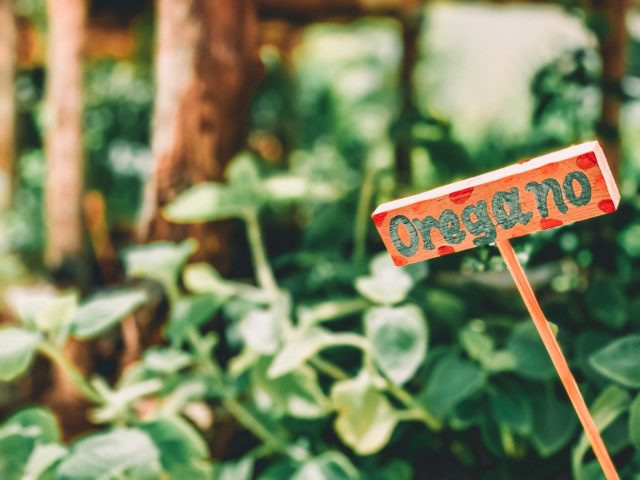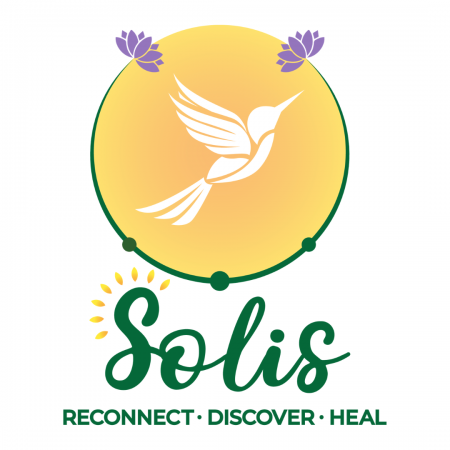Okay, so I don’t know if “quadfecta” is a word or not, but I’m using it anyway!
The cold and flu season can be a stressful time for those going through and recovering from cancer treatment. Our immune systems are down or not at 100% because of the effects of treatment, and our bodies are dealing with healing so much other stuff that it’s hard to catch all the little bugs that make their way in. Therefore, it is vital for those in treatment or recovering from it to fortify their immune systems and head-off colds in their early days. I had treatment in the fall of 2017, so when I recovering afterwards over the winter I was super concerned about this and supporting my immune system. Luckily, I had this tried and true cold quadfecta indelibly etched into my memory thanks to my mom.
As I may have mentioned before, my mom was always very interested in alternative modes of healing, and we went to see a holistic doctor from time to time in addition to our family MD when I was a kid. That interest resulted in more than a few helpful remedies being incorporated into our medicine cabinet, the signature one being this immune-boosting combo. Whenever I feel a cold coming on, these four things are my go-to, significantly reducing the severity and duration of my cold symptoms.
With so much going into our bodies during treatment, we have to be really careful about drug interactions. Below, I will detail each of the components of this combination and let you know how to modify it or what to avoid if you are currently in active treatment. And remember, the best time to use this protocol is when you FIRST feel a cold coming on. Catching it early it key to a short-lived illness. And please keep in mind, I am not a doctor and am just sharing what I do. Always get the input of your healthcare team before adding anything new to your protocol. Let’s get to part one, vitamin C and oregano oil!

Vitamin C
This is one that everyone should be familiar with and is one of the best immune-boosting vitamins. Unlike most animals, humans are actually unable to synthesize vitamin C in their own bodies, and so it is an essential component of our diets [1]. Vitamin C in necessary for the production of collagen, and it therefore has quite an impact on joint and connective tissue health and wound healing [1]. Vitamin C is also one of the most commonly known antioxidants, actually helping to regenerate other antioxidants in the body in addition to scavenging and limiting the effects of free radicals in the body. Due to this strong antioxidative activity and its important role in the immune system, vitamin C is being examined in ongoing research for its potential to delay or prevent the development of certain cancers and other diseases [1]. If you would like to read about my use of high-dose vitamin C IVs as part of my cancer protocol, please click here.
Now, you may be wondering what’s better, getting vitamin C from our diet or from supplements? The answer might you surprise you. In a study found comparing the absorption of vitamin C from food and that from supplements, no statistical difference was found between the levels of vitamin C absorbed into the blood and tissues of participants from food versus supplements [2]. This may be for a couple of reasons. Firstly, cooking produce breaks down the vitamins and minerals in them, so when foods high in vitamin C undergo the cooking process some of that vitamin C gets lost. Secondly, our food today simply doesn’t have the same level of nutrients that it used to. In a 2004 study, today’s fruits and vegetables were actually found to have 30% less vitamin C than in the past [2]. For these reasons, and because vitamin C is so important to immune function and antioxidant action, it could be a good idea to incorporate a vitamin C supplement into your protocol.

The best vitamin C to take is liposomal, which basically means that it is more easily absorbed. A liposome is a tiny phospholipid (a type of fatty acid) that mimics the body’s cell structure and therefore may be more easily absorbed across cell membranes [3]. It is important to choose a high-quality liposomal vitamin C, however, because these liposomes are sometimes derived from low-quality sources such as GMO oils. I use LivOn Labs liposomal vitamin C right now and love it. It contains only ingredients necessary for an effective liposomal supplement without any fillers or sugar, comes in single-dose packets for optimal freshness and effectiveness, and uses real liposomal encapsulation. I have also used Dr. Mercola’s Liposomal Vitamin C in the past. Dr. Mercola is an osteopathic physician who is also board-certified in family medicine and served as the chairman of the family medicine department at St. Alexius Medical Center for five years. He is trained in both traditional and natural medicine and has been exploring natural medicine since 1990. I very much trust his products too.
I take 1000mg of liposomal vitamin C every day in addition to my monthly high-dose vitamin C IVs, but when I’m sick or feel it coming, I up that to 2000mg 2-3 times a day for a couple of days. I never have, but if you do notice this amount gives you some intestinal distress, lower the amount you are taking. If you are currently in treatment, your oncologist will likely recommend that you DO NOT take vitamin C because of its antioxidant activity. Some chemo drugs and radiation work by creating free radicals that target and destroy the rapidly reproducing cancer cells, so you don’t want to disrupt that work with low doses of vitamin C. There is lots of evidence you can discuss with a naturopath or holistic doctor that supports high doses of vitamin C (we’re talking 25 GRAMS or more) actually supporting and improving the action of conventional treatment, but that is a different mechanism than the low doses of a supplement. Again, you can read about this in my post on vitamin C IVs here.

Oregano Oil
Oregano oil is my secret weapon against colds and flus. It has long been known to have antimicrobial, antiviral, and antifungal properties, but it’s antioxidative, anti-inflammatory, and cancer suppressing properties are also starting to be explored.
The antimicrobial and antiviral properties of oregano oil are the most well-known and heavily studied actions of this oil. A 2012 study using many clinical strains from two different genera of bacteria showed that oregano oil inhibited the growth of every strain used in the study [4]. Other research looked at the antiviral capabilities of oregano oil. The function of a virus is to deliver its genetic material into a host cell where it can be replicated and spread, and most viruses fall into one of two categories: either RNA (their genetic material being stored in an RNA genome vs a DNA) or DNA (having a DNA genome vs an RNA) [5]. A study from 2011 sought to observe the antiviral activity of Mexican oregano oil. In surprising results, they found that the oil and its main active compound, carvacrol, were effective against both RNA and DNA viruses [6]. This is an important advantage over antiviral drugs on the market, which generally act on either RNA or DNA viruses but not both, or may even act on a single virus or group of viruses [6], making oregano oil a very promising antiviral candidate.
Another exciting, and relatively new, area of research for oregano oil is it’s anti-inflammatory and anticancer properties. When it comes to inflammation, a recent study from 2016 found that compounds from oregano, including carvacrol, significantly reduced a number of molecules and proteins that are key to the progression of inflammation [7]. When it comes to cancer, multiple studies have shown that oregano oil has both antiproliferative effects (halting the rapid cell replication of cancer) and cytotoxic effects (causing cell death) on human cancer cells. Using different types of human cancer cells including breast, colon, and lung, oregano oil was found to significantly reduce cell proliferation by 48-60% [7]! The anti-tumour effects of oregano oil are also very exciting, with studies showing that a low dose of oregano oil in a three-month period decreased the size of tumours in diseased animals by 1.5 times. The same studies also found that oregano oil induced apoptosis (programmed cell death) and blocked angiogenesis (the formation of blood vessels by a tumour through which to feed itself) [7].

It has also been indicated through research that oregano oil has antioxidant effects. This is great for those who are finished treatment and wishing to improve their immune systems and protect themselves against cold and flu bugs. However, just like with vitamin C, it is likely that your oncologist will tell you to avoid antioxidants while in active treatment so as to ensure your treatments have their full effect, so this is another one to save for after active treatment has finished.
When I feel a cold coming on or I have been around someone who is sick, I put 6 drops of oil under my tongue, hold them there for 30 seconds to allow some to be absorbed into my bloodstream right away, and then wash them down with water. I repeat this 2-3 times a day for a few days. I will warn you, oregano oil is not that pleasant! It has a very strong flavour and kind of tingles in your mouth. I have by now gotten completely used to the taste and sensation and actually enjoy its refreshing effects, but don’t be alarmed by either; the feeling is entirely normal! I also suggest taking oregano with a little food, as it can be a bit hard on an empty stomach. I have never noticed anything like cramping, but some people are more sensitive than others. If you do notice some intestinal distress, reduce the number of drops you are taking and work up to six. You also want to make sure you are choosing an oil that is preferably organic and that definitely does not use a GMO carrying oil. Oregano oil can also be pretty expensive (up to $50 a bottle!). I recommend this oregano oil from Natural Factors (if the 2oz size is too expensive for you, you can also get a 1oz size for less). It lists an ensured amount of carvacrol, is organic and non-GMO, and it is reasonably priced. I also love this one from Swanson Vitamins and use it currently.
…..
I’m going to leave it there for now. Sorry for the length of today’s post, but I thought it was important to include the research for those like myself who really want to know there are studies behind these remedies. I will finish up next week with the second half of the quadfecta!
In the meantime, Happy Healing ❤️
References
- Vitamin C: Fact Sheet for Health Professionals – https://ods.od.nih.gov/factsheets/VitaminC-HealthProfessional/
- Vitamin C: Natural Vs Synthetic – https://www.smartypantsvitamins.com/blogs/articles/vitamin-c-natural-vs-synthetic
- Optimal Liposomal Vitamin C – https://www.seekinghealth.com/products/optimal-liposomal-vitamin-c-30-servings
- [The antibacterial activity of oregano essential oil (Origanum heracleoticum L.) against clinical strains of Escherichia coli and Pseudomonas aeruginosa] – https://www.ncbi.nlm.nih.gov/pubmed/23484421
- Medical Microbiology, 4th edition, Chapter 41: Structure and Classification of Viruses – https://www.ncbi.nlm.nih.gov/books/NBK8174/
- Antiviral activity of the Lippia graveolens(Mexican oregano) essential oil and its main compound carvacrol against human and animal viruses – https://www.ncbi.nlm.nih.gov/pmc/articles/PMC3768712/
- Essential Oils of Oregano: Biological Activity beyond Their Antimicrobial Properties – https://www.ncbi.nlm.nih.gov/pmc/articles/PMC6152729/#B16-molecules-22-00989
*Disclosure: this post contains paid links, although I never let that bias my recommendations and would never recommend something of poor quality.




0 Comments